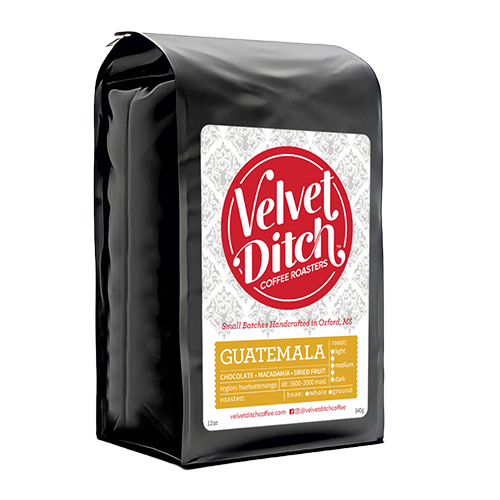Cupping Notes
This organic coffee has a nutty aroma reminiscent of roasting chestnuts over a fire during the holidays. The flavor notes taste like blackberry, honey, chocolate and jasmine with a lingering sweet aftertaste. The acidity is delicate and tart with a hint of grapefruit. It’s a crisp and refreshing coffee that is smooth and creamy. There are so many nuances in the cup that it needs no sugar or cream. It’s perfect on its own.
About Ethiopia and the Guji Region
Did you know that Ethiopia is the birthplace of coffee? Coffee grew natively in Ethiopia and there’s an ancient story of Kaldi, the goat herder, who first discovered the wonderful effects of coffee beans. Kaldi noticed the energy and vigor his dancing goats would have after eating the cherry fruit. He shared the cherries with monks at a local monastery who discarded the beans into a fire claiming they were the Devil’s work. But the roasting beans smelled so delicious that the monks raked them from the fires and put them in a jug, covering the beans with water. Then, the monks sipped the brew and it helped them stay awake during nightly prayers. This is a widely shared origin story and more than likely the true founders of coffee are the nomadic Oromo people from the region. Nevertheless, it’s fun to imagine dancing goats and a little boy with a big dream.
Coffee is an inseparable part of the Guji, and the wider Oromo, culture. Some historians believe the Oromo people used coffee as early as the 10th century AD, although it wasn’t used as a drink then. In those times, coffee beans were mixed with edible fat to create small balls that people chewed on to ward off tiredness. It was an ideal snack to carry on long and tiring journeys.
As you sip this amazing organic Ethiopia coffee, enjoy the energizing effects it offers. This Guji coffee is most extraordinary with its smooth, crisp and enticing flavor notes. It offers a balanced and pleasingly complex cup profile – perfect for both filter and espresso.
Guji is a secluded region in Ethiopia. It’s a remote place in Southern Ethiopia with beautiful forests and is luckily undeveloped. The roads are rural and the people work hard caring for their coffee crops. Many farmers grow their coffee plants alongside various food crops as a way to increase land use and to provide food for the community. There are many coffee varieties in Guji that are indigenous to the area, having grown naturally in the area for centuries. After all, Ethiopia is the birthplace of coffee.
Related
| Weight | 12 oz |
|---|---|
| Dimensions | 3 × 4 × 7 in |
| Grind | Whole Bean, Drip, French Press, Espresso |
| Size | 6 ounce, 12 ounce |













